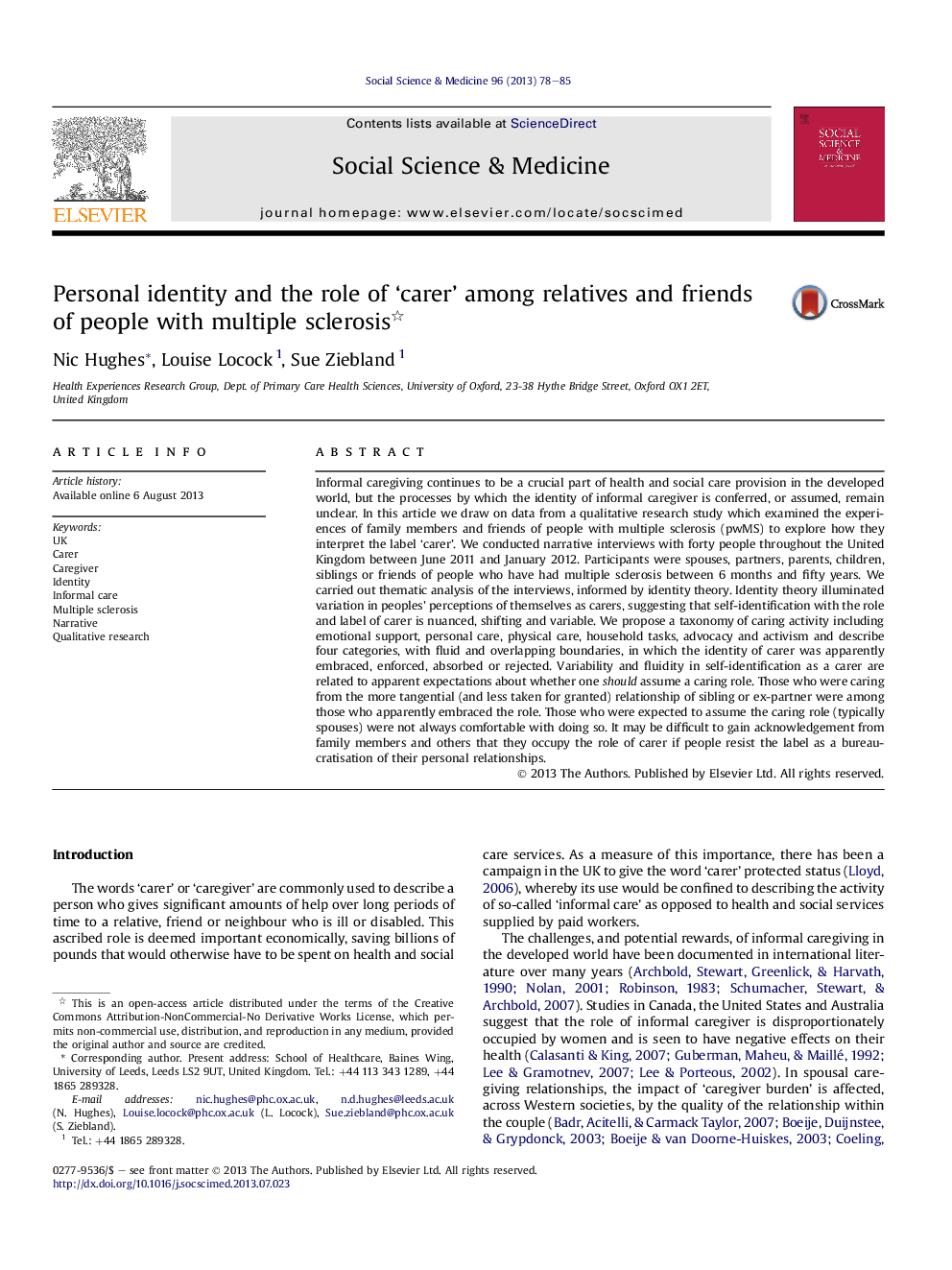| کد مقاله | کد نشریه | سال انتشار | مقاله انگلیسی | نسخه تمام متن |
|---|---|---|---|---|
| 7336725 | 1476072 | 2013 | 8 صفحه PDF | دانلود رایگان |
عنوان انگلیسی مقاله ISI
Personal identity and the role of 'carer' among relatives and friends of people with multiple sclerosis
ترجمه فارسی عنوان
هویت شخصی و نقش "مراقب" در میان بستگان و دوستان افراد مبتلا به مولتیپل اسکلروزیس
دانلود مقاله + سفارش ترجمه
دانلود مقاله ISI انگلیسی
رایگان برای ایرانیان
کلمات کلیدی
انگلستان، مراقب مراقب هویت، مراقبت غیر رسمی، مولتیپل اسکلروزیس، روایت، تحقیق کیفی،
موضوعات مرتبط
علوم پزشکی و سلامت
پزشکی و دندانپزشکی
سیاست های بهداشت و سلامت عمومی
چکیده انگلیسی
Informal caregiving continues to be a crucial part of health and social care provision in the developed world, but the processes by which the identity of informal caregiver is conferred, or assumed, remain unclear. In this article we draw on data from a qualitative research study which examined the experiences of family members and friends of people with multiple sclerosis (pwMS) to explore how they interpret the label 'carer'. We conducted narrative interviews with forty people throughout the United Kingdom between June 2011 and January 2012. Participants were spouses, partners, parents, children, siblings or friends of people who have had multiple sclerosis between 6 months and fifty years. We carried out thematic analysis of the interviews, informed by identity theory. Identity theory illuminated variation in peoples' perceptions of themselves as carers, suggesting that self-identification with the role and label of carer is nuanced, shifting and variable. We propose a taxonomy of caring activity including emotional support, personal care, physical care, household tasks, advocacy and activism and describe four categories, with fluid and overlapping boundaries, in which the identity of carer was apparently embraced, enforced, absorbed or rejected. Variability and fluidity in self-identification as a carer are related to apparent expectations about whether one should assume a caring role. Those who were caring from the more tangential (and less taken for granted) relationship of sibling or ex-partner were among those who apparently embraced the role. Those who were expected to assume the caring role (typically spouses) were not always comfortable with doing so. It may be difficult to gain acknowledgement from family members and others that they occupy the role of carer if people resist the label as a bureaucratisation of their personal relationships.
ناشر
Database: Elsevier - ScienceDirect (ساینس دایرکت)
Journal: Social Science & Medicine - Volume 96, November 2013, Pages 78-85
Journal: Social Science & Medicine - Volume 96, November 2013, Pages 78-85
نویسندگان
Nic Hughes, Louise Locock, Sue Ziebland,
